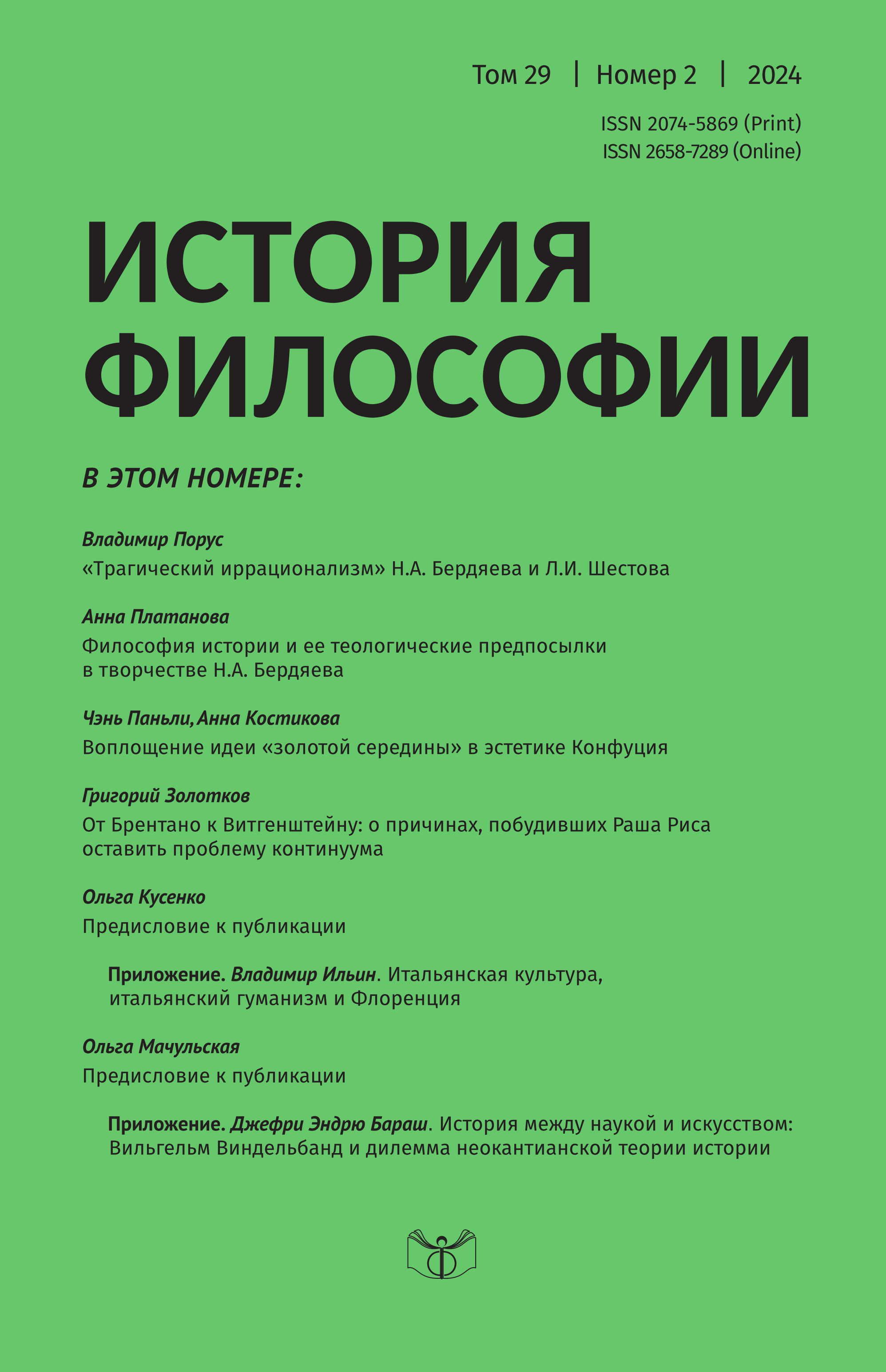“Tragic Irrationalism” by N.A. Berdyaev and L. Shestov
DOI:
https://doi.org/10.21146/2074-5869-2024-29-2-5-17Keywords:
tragic irrationalism, formal rationality, culture, cultural universality, cultural crisis, “philosophy of tragedy”Abstract
The article reveals the specifics of irrationalism, which habitually characterizes the philosophical views of N. Berdyaev and L. Shestov, and the influence that F. Dostoevsky had on these views. The irrationality of a person, as Berdyaev understands it, is expressed in the fact that the desire for personal freedom is incommensurable with the desire for prosperity, pleasure, and benefit everything that is considered as the rational goals of the individual and society. It elevates a person above everyday life and leads to a rebellion against culture. Such irrationality is opposed not to rationality as an epistemic value, but to “formal rationality” (in the sense of M. Weber), claiming primacy among cultural universals. “Formal rationality” in modern culture has become a fake value, under the sign of which hypocrisy and cruel indifference are located, especially when it comes to the “unfortunate”, rejected by the culture of people. Therefore, Berdyaev’s “irrationalism” is nothing more than a protest against culture as a sphere of simulacra in the role of cultural universals. The same protest is characteristic of Shestov. Both philosophers proclaim “human tragedy” as the main theme of philosophy. The difference between them is that Berdyaev sees an eschatological perspective in which the “philosophy of tragedy” leads to the apotheosis of freedom, and Shestov, not trusting such a perspective, rearranges the craving for freedom of specific religiosity, the meaning and content of which he persistently but unsuccessfully sought.

